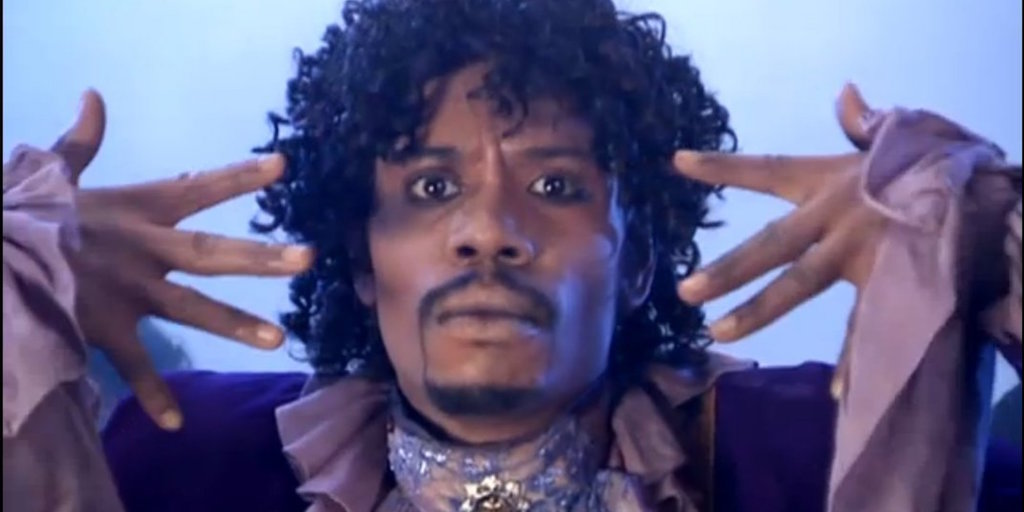“You’re welcome”

I can’t believe anyone thought NFTs were a good idea to begin with.
Conceptually NFTs could be useful.
The use case of “buy funny pictures” was the stupidest grift yet
I’ve never heard of a way that NFTs are actually useful, I’ve only heard of people saying things we can do today, but with blockchain (and much less efficiently), or as a way to form a speculators market (ie: a con)
I am a big proponet of blckchains, but speculative nfts have no purpose. Using a blockchain to establish who authored tome work, thats a an actual use.
we already have that feature in our society, without nfts or blockchain. it’s worked for hundreds of years
Blockchains are public ledgers of information. It’s neat. It can be a practical way to keep a ledger. Apparently some banks use a blockchain to validate transactions now.
It’s the whole hype about how it would change the world, and the incredible amounts of grifting that poison Blockchain for the public. For far too many people, it’s just another get-rich-quick scheme.
you can have a public ledger of information without blockchain, we’ve done that for thousands of years in far more efficient ways.
Sure we can do without. We have done without many things for “thousands of years”. I seriously doubt that it was more efficient in all circumstances.
The claim of public ledgers having been more efficient for that long is so absurd to me that I’m doubting whether you are serious.
Block chains do not need to be, and most real applications are not, public. Signing signed work has existed for decades, and almost every single use of it is in a private application.
Copyright isn’t the same, but moreover, it’s not that it didn’t exist. It’s that blockchains remove a class of failures that exist in centralized beauracracy.
and replace those well-known, well-understood, workable failures accounted for by decades/centuries of law, with a brand new class of failures! and hurt the environment as a fun side effect
Yes, never change, never do new stuff. Also, human bureaucracy uses more energy than proof of stake systems.
I’m not a block chain defender in any sense, but you don’t have to do the idiotic proof of work crap to make block chains actually usable. You and I can sign something with a key, for instance. And the signing of signed data creates the “chain”. No worthless CPU usage, no idiotic “proof of…”. You know it’s my key, I know it’s your key, we know the order of signing. Done.
All the hype nonsense was just grifters trying to steal money. And crypto currency has absolutely no purpose whatsoever.
How does it establish who authored a work? The only thing the blockchain can be guaranteed to prove is who first registered it on said chain, which absolutely doesn’t necessarily mean the author. Immutability doesn’t do anything to solve the garbage in garbage out problem.
Digital timestamping existed before blockchains
It might be useful for artists to register all their work so grabby AI companies can’t just use it as training data because it has digital ownership.
I imagined it used for trading rare items. Imagine games like the classic Diablo2 where you can fight random characters and collect rare items. If each were an NFT, the ownership could be traded to other gamers for real money. In that aspect I see real value.
But that’s not how it’s been implemented.
Also for reference, Kodak actually patented a blockchain technology to provide IP rights to photographs taken on special cameras which actually could be extremely beneficial if properly implemented.
You can do that without nfts and blockchain. And have been able to do that in other games, and again it’s just about funding a speculators market which is of no use to anyone aside from people conning other people.
Gotcha, I stopped gaming a long time ago - life keeps me too busy. I swear I’ll start/finish Skyrim when I finally retire - maybe by then it’ll be ported to some holographic virtual reality game system lol.
It’ll probably be The Elder Scrolls: Skyrim Anniversary Super Special Deluxe Ultra Ultimate Edition 2
They’re pretty good for getting rid of ticket touts but the company doing that is based in the Netherlands and it’s slow to spread elsewhere. The protocol’s rules mean you can’t resell for more than face value and they’ve sold over 4m tickets that way.
NFTs have absolutely no effect on ticket reselling. Instead of selling the token you sell the wallet at whatever price you want. And to do that you’re giving up refunds & easy online purchases.
Looking at “your ticket provider” who I think you’re talking about they claim they’ve sold 4m tickets, but their NFT integration involves making copies of tickets sold traditionally. They haven’t sold 4m NFT tickets. Doesn’ t even look like they even mention NFTs on their site.
GUTS tickets?
They mention the protocol prominently but don’t make note of the token standard they use (ERC-721, maybe ERC-1155 these days - aka NFTs).
You can’t really sell your wallet as easily as you think, it’s tied to your GUTS account which you’ve verified on your phone along with all of your personal details so the new meta fantasy you’d have to imagine is somebody selling tickets with phone or selling a GUTS account with maybe a burner phone number but also your actual personal details attached (this hasn’t been happening…at all), it’s not like selling somebody a BTC private key. Different protocols can have different rules built in.
One of Netherlands largest comedians uses them and was delighted with the eradication of scalpers after they sold 50k tickets in a few hours for him. Ziggo Dome partnered with them (big 17k concert venue) and has also extolled the virtue of a scalperless ticket seller/reseller.
I get it, you hate shitcoins and anything related to shitcoins is immediately cancer - but this exists and it works and has worked millions of times.
So having read through how GUTS works:
- The wallets aren’t stored by users, instead by the company tied to an account
- You can thus only resell using their system
- Tickets are issued and re-issued centrally, allowing for refunds on a system where that’s fundamentally impossible (by keeping a list of “invalid” tokens - or since they have control of the wallet they can do whatever)
- Purchases are made through normal online payments, not crypto
So please explain to me how this system benefits from being based on NFTs. Looks to me like the only thing NTFs are doing here is adding overhead and a marketing gimmick.
The benefit is the protocol can be used by any other ticket resellers worldwide very easily without having to set up some kind of multinational co-op and that the protocol/smart contract enforces the rules.
Usually the argument I’d hear is “But couldn’t any company do this with a database?” and the answer is “Sure they could - now show me a company with shareholders who profit off of their consumers getting fucked over habitually that’s willing to do it.”
Ticketmaster thrives on being a law unto themselves, everybody complains about them, here’s something that fixes it, proven to work for years, millions of tickets sold with no sign of a scalping market and the people who hate shitcoins throw their toys out of the pram and insist on maintaining Ticketmaster’s dominance.
Congrats I guess, you get what you deserve.
Your conflating the idea of BTC or other currencies being decentralised with the needs of a specific protocol - not everything has to be shitcoin maximalism, it just has to be useful to the businesses and consumers using it. Purchases being made though normal money is a feature, not sure why you’d want it to be crypto since you hate it, you don’t want to force people to see the boring backend stuff that shouldn’t matter to them, that’s what smart contracts are essentially for. The protocol enforces a ruleset, that’s it. If it was designed to be transferrable wherever to whomever without using the protocol the original negative point you had at first (which you seemed to think is a bad thing, as do I) would now exist with people selling wallets and such.
It’s fantastic for things like game characters and cosmetics - it would be awesome if, say, clearing or 100%-ing a game let you use assets from that game in compatible games… like an open protocol for gamertags.
Imagine how much more people would be into events if you got to use the unlocks in other games. It could provide a safe and easy copyright framework for developers using such assets in other games (since only the owner could issue an nft), and encourage compatibility which would drastically increase the ability to reuse character models
There would even be room for monetization later on - if this system grew to any size, artists could sell assets, and could even make money by charging in coin for transfers (like it happens now)
Instead, they over monetized it from the start. Integration never became popular for developers (because why would it? Without good libraries, free default assets, and a copyright framework, it’s just a niche feature that might make it in as an afterthought).
What they needed was basically anyone to champion this kind of system in exchange for a payoff down the line. Any publisher could have released some libraries and given away old assets, and they could have become an exchange for assets…a few groups independently did this, but they focused on making money immediately without offering anything for developer adoption
Instead, it started to be used for money laundering, artists and collectors saw dollar signs, and it exploded without anyone building the foundation
All the things you describe either do not need nfts or blockchsin, or are just speculator marketplaces and thus of no actual use to anyone but con artists.
Been paying attention and haven’t seen a single use case for them that isn’t covered better by other less wasteful and more standard technology
Only if you stretch the definition to the point where you’re calling someone’s Steam inventory a set of NFTs - yeah, it’s a digital record of unique(ish) games & items, but the “on the blockchain” part was the whole thing that defined NFTs. Every single supposed use case I saw for them relied on pretending that a legal problem (licensing, mostly) was a technical limitation.
What’s bizarre is Seth Green thought he could make a TV show based on the one he bought. Then someone stole it and he had to pay $300,000 to get it back. Since then, no sign of a TV show.
It’s probably more likely he’s realised how embarrassing a show based on NFTs would be in 2023 when they’re a complete laughing stock and so are people who bought into the hype of spending huge amounts on them. He’d probably rather everyone forgot
This guy gets it. Gamers want NFTs but they don’t know it because they don’t know what NFTs are
They are the perfect tool of digital capitalism
They create artificial scarcity
The artists who became millionaires from selling NFTs still think it’s awesome.
Bag holders trying to offload crypto wanted it to be good.
Companies did
Anybody who supports small artists that make art for video games so they can get a cut of the profit across multiple platforms and games.
This guy gets it
Just a friendly reminder, as sarcastic as it sounds with the “good job internet”, this article is sincerely praising how people across the internet made many game studios and publishers reconsider and avoid using NFTs in games, comparing it to how internet buzz brought legislative attention to loot boxes in games.
PC Gamer is anti NFT. That headline is not sarcastic, it’s actual praise.
Definitely anti-NFT.
Oh good, I was worried!
(also being genuine here)
The internet did something right for once.
The Internet also created the problem in the first place.
Not the Internet. Just a couple of greedy scammers who tried to sell air to the people. Internet is a tool, not a cause .
NFTs were a weirdly mainstream thing. They happened on the internet, as a conduit, but the primary buyers were normie types who think phone apps are for getting laid, they all thought they were buying the next Bitcoin, it was their turn to get wealthy overnight. Instagram got pretty heavily involved, and you know how us neckbeard Redditor types love our Instagram feeds.
The Internet, as an actual community, was against them from the jump. The Redditors, of all people, were one of the first really tech-savvy crews to raise the public alarm, saying yeah, I’m a guy who does computers AND finance for a living, I’ve looked into this from every angle, it doesn’t make sense. I’d stay out of it if I were you, and watch out for your loved ones. Rare Reddit W on that.
The artsy blue haired pronouns of Tumblr hated NFTs from the jump, because scammers started stealing their work pretty much immediately. Everyone on Twitter who wasn’t an NFT shill despised them. NFTs had immediate douchebag energy.
None of us were really down with NFTs, ever. They smelled scammy as hell, and anybody who said boo about them got dismissed as an out of touch old person, even if they were 23.
Some witty person called them “astrology for men” or something like that. The Internet was already burned out from crypto bros by the time NFTs showed up. We were born done with their bullshit.
The crescendo was Dan Olsen’s Line Goes Up, a Youtube explainer on NFTs for people who were honestly pretty savvy about them already.
His deep dive uncovered the truth, which is that all the endless hype was coming from heavily moderated scammer Discords, which were conveniently filled by the Call of Duty players of the world who didn’t fuck with the rest of the internet, they were mainstream white guys, mostly, sports fans, regular types. They were all pretty fucking ignorant about technology, on average, and didn’t have the tuned bullshit meter to stay out of NFTs. Again, they all thought they were riding the rocket to the moon, so they could finally sing along to the rap songs about their first milly and mean it.
None of them were really FROM the internet, they were all outside guys, people who were too cool for the rest of it, here for the pussy and the money, bro, you know? Inside the scammer Discords, where they spent all their time, absolutely nobody was allowed to ask any of the very reasonable questions that a person might ask about a potential investment. All of that was FUD: Fear, Uncertainty, and Doubt, an instant ban, fuck your negativity, bro. Nobody was allowed to ask, do or say anything that might halt the hype train.
Everyone who realized they were scammed also realized the only way out of the scam was to keep the hype up and sell their stupid NFT to a greater fool for more money, so the hype was REALLY hard, everyone was trying to pull in a sucker so they could cash out. That, right there, was the missing fact that the rest of The Internet was waiting on, and it was a huge “Ah Ha” moment for everyone when Olsen dropped that bomb. Finally, the explanation for the giant hype about something that appeared to be completely worthless. Now it makes sense.
It was a cult, and the only people really profiting were the scambros who realized they could just pull fraud after fraud after fraud with rugpulls that didn’t really count as fraud, since lawmakers were still in the “what the fuck is an NFT” phase of lawmaking. It was INCREDIBLY profitable for scammers, they were selling air, even when their projects “failed” no they didn’t, actually, the scammers walked away with thousands, even millions. The chumps got nothing. It was free money, a scammer feeding frenzy.
So you had a bunch of fuckin dudes who barely had a grasp on their iPhones throwing all their money at something that was puzzling to the people who work with computers full-time for a living. Like Olsen said, you don’t “get it” because there’s nothing TO get, if you “get it” you’re being taken by the scam. It’s literally confusing to you because you aren’t stupid enough. It doesn’t make sense because it doesn’t make sense, it’s a scam.
Those mainstream, barely work an iPhone guys were getting ripped off left and fucking right. I guess you could just drop things into other people’s NFT wallets with no security so that when your target clicked on the thing to see what it was it triggered some code that emptied his entire wallet into yours, bye bye money, bye bye apes. It was a complete shitshow. That issue never got “fixed” because it was fundamental to how the whole blockchain of it worked, there was no fixing it. Nobody got their money back. Nobody got caught or charged for their thefts. It was a bloodbath.
Axie Infinity turned into digital sharecropping, a whole new way to fuck the poor in the Global South, it’s just, everything NFTs touched turned to evil fucking poison.
DAOs never, ever worked. Not like they were supposed to.
Meanwhile, they were trying to shove NFTs into everything, either because they didn’t get it, or because they DEFINITELY got it, this was better than Team Fortress hats, you could get these morons to pay their life savings for all kinds of nothing. It was better than lootboxes and that takes doing.
The Internet, the actual community, was getting angrier and angrier about it, because we were never on board with this shit in the first place. It was a truly rare moment of solidarity for us all, Twitter feminists and Reddit techbros on the same wavelength, for just this once. They were going to turn everything into a fuckin NFT. They were talking about turning your ID and professional licenses and everything else into this horrible, horrible scam. Never mind the vidya games, they had MUCH bigger targets in sight, bad news everywhere. Everyone who wasn’t stupid said “hell to the fuck no”, and we fought. For once, we actually won. I don’t know if we ever deserved any credit - aside from Dan Olsen - but we won.
And in the end, you get this stupid asshole in the article, all sad like we fucked up a good thing, so I guess he was one of the mainstream dipshits who thought we should all have our lives run by a DAO. Fuck you dude. Sorry you lost the chance to sell us nothing for everything. Man, think of all those kids, what a juicy crop of chumps. No wonder you’re a sad monkey.
Oh, and I don’t have sauce, but years later I think it came out that the guy behind the Bored Ape Yacht Club is a Nazi because of course he is.
We dodged a bullet on NFTs, and I’m still not sure if we’re safe. That was a GOOD scam, and everyone is a scammer, now, especially corporations. The best scams are the ones the rubes can’t opt out of, so maybe if they just remove the “opt out” part. They’re still thinking, still looking for a way back in. Fucking stupid monkeys.
Great rant! I really appreciated it. Much like crypto, as soon as I heard about NFTs, I just kinda shrugged my shoulders and turned away because I have a good, stable job that I enjoy. Every so often I can splurge and buy myself something special. I don’t need to be out there hustling to buy and sell things that ultimately have zero value in my world. It’s all just so dumb.
Nice summary of the sad, pathetic history of NFTs. That Dan Olsen video is great, highly recommend it to anyone who hasn’t seen it.
The article’s author is dead against NFTs if he’s the stupid asshole you’re referencing.
The problem was it resonated with all the people who missed out on Bitcoin and we’re hoping to join in on the next hot pyramid scheme.
Blockchain is conceptually cool as shit, but managing to produce a product that doesn’t end up being a pyramid scheme with it is neigh impossible
Not that I disagree with you, but in this case that’d mean the internet didn’t do shit to get rid of NFTs too so the article’s already on the wrong foot
I literally forgot about NFTs until seeing this post.
Whoever thinks this is a problem needs to be bullied more.
At first glance NFTs in games seem to make sense. For example take a digital trading card game, might be pretty cool to hold ownership of your cards outside the game and be free to exchange them with other players with no restrictions, right?
But then you have to think a step further: The card is useless without the game. If the game shuts down? Nobody can use the card. If the game decides in two years that the card you own is too powerful and they forbid it from tournament play? Well, wasted money.
So overall you might be able to prove ownership of a “card”, but without the context of the game it’s meaningless data. And the game has to decide itself what your card means and what it can do. So we’re back to simply using a normal database inside the game to hold your cards giving the same benefits (without the headache of NFTs).
The argument that you could use the card or the item in another game is bullshit on top. The other game would have to implement every item, which they simply won’t do. So NFTs in the gaming niche are overall bullshit.
A game developer could easily link a trading card to an account. There’s no need whatsoever to use an NFT for that.
And if you want to use them in 3rd party games too? The game developer could sign a list of cards you own which you can import. No need for a blockchain.
Why would developers allow that? They’re capitalists and want to lock you inside their platforms
If you’re a scammer it sounds amazing. Otherwise, something like the steam market is way better.
You wouldnt have to implement every item, youd just have to make a default option for things that do not have an implementation for a game.
A similar example of how it would work irl is how Amiibos work. In Smash, a link amiibo would use a link AI, in zelda, it can spawn rare materials or spawn Epona in BOTW/TOTK. Scan a link amiibo in like Animal Crossing itll tell you not supported. In fire emblem games, generic ammibos with no special effects drop random material
How amiibos work for specifcally smash. As its the only one that writes data to the NFC chip, is sort of like NFTs for gaming, but a physical product. No one else has your specific AI (unless you dumped it)
All your examples still go back to each and every game having to implement that item. There is no “default option”.
And if every game has to implement each item… they can just leave items out. Or block them. Or say they are invalid. Or change them (buffs/nerfs). So you might think you are holding a unique item that only belongs to you, but in reality it’s worth nothing as it can be removed with one click from any game you might want to use it in.
Which makes an NFT not an ounce better than having that item in the game’s database.
It wouldnt, because in the case of amiibos, each is just an ID stored in the NFC chip, the only implementation they would need to do is during something like a switch case check in programming, if none of the implemented cases are detected, then it would default to the default option, it doesnt need to be specific to the said amiibo, it just needs to not be in thr ID list that is not already inplemented. The non implemented path is the “default” option. What other term would you even refer to for the specific case where it is NOT the case.
Your whole situation is more or less is how konami implemented yugioh cards in its early games.
The “default option” you bring up is useless. What value does it have if I “own” a playing card ID, but the card isn’t implemented in 9 out of 10 games? And the tenth game shuts down after a year, so now my card can’t be used anywhere. It’s idiotic.
As it’s just an ID I probably don’t even have any card image or stats or whatever, it’s a worthless value in a database (blockchain in this case).
It isnt useless as in some cases, amiibos would provide material, albeit its less valuable than the ones implemented, it does serve a function. In the context of yugioh, they were only implemented for the first few gameboy/gba games till the code feature dropped off entirely.
I’m still talking about NFTs here, not Amiibos… and in the case of an NFT you don’t even get a physical object to look at.
It baffles me that people still try to defend the point of NFTs in multiple games. What is the motivation do you think there is for Amiibos to work across those games? Those are all first party Nintendo games, so they still are making money off of it.
Where the hell is the motivation to get your legendary dong slayer sword to work in call of duty? Why would they want to support that? They don’t, and it makes no sense why they ever would.
Again, it’s different with Amiibos because they’re all developed by Nintendo companies, and Nintendo can force them to do that. You’re also getting actual merchandise and something you can hold on to instead of a digital receipt.
You make it sound like I was pro NFT (im not), im just saying NFT-like usage already exists without the use of NFTs or not.
Ya and Amiibos are shit. It’s more expensive ways for pay to win.
But at least you get a physical thing when you buy an Amiibo. My daughter used to buy them just because she liked the figures, she didn’t even care about the game part. With the NFTs, you get… a picture anyone else can duplicate on their own computer
We don’t need your money laundering scam involved in games.
No look, bro. You just don’t understand. NFTs mean that if I buy a Fortnite skin, then I OWN that skin. That means I can use it in Diablo. Trust me, bro. It’s the future.
/s in case the multiple “bros” wasn’t enough
Didn’t realize we could bully a jpeg
You can’t bully a jpg. You can, however, bully a link to a jpg that you don’t actually possess.
You clearly haven’t seen weebs then :D
Not a jpeg… a receipt, with a link, to a copy, of a jpeg (that you don’t own any rights to).
Cool.
This means we must have diverged from the worst timeline.
I guess that’s proof right there that things could have been worse
The NFT people were sending death threats to content creators and artists speaking out against NFTs. I don’t think we were the ones doing the bullying.
I disagree with the use of the word ‘bullying’ implying that they would’ve happened otherwise. NFTs in video games would never have happened, because they don’t do anything that publishers weren’t already doing.
Good
I see this as an absolute win





















